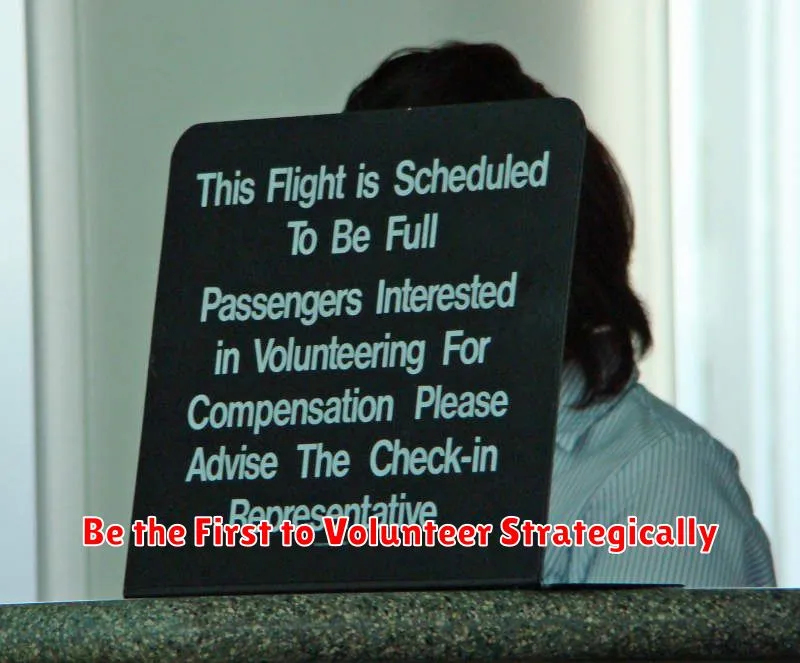Experiencing overbooked flights or flight delays can be incredibly frustrating and disruptive to travel plans. Whether you’re dealing with a missed connection, a canceled flight, or simply a lengthy delay, understanding your rights and knowing how to navigate these situations can significantly reduce stress and potentially lead to compensation. This guide will provide essential information and practical strategies for handling overbooked flights and flight delays effectively, empowering you to take control and minimize the impact on your journey.
From understanding the reasons behind flight overbooking and the common causes of flight delays to learning how to negotiate with airline staff and secure compensation for your inconvenience, this comprehensive guide will equip you with the knowledge and tools you need. We’ll explore your passenger rights, discuss the importance of travel insurance, and offer practical tips for managing flight disruptions, ensuring you’re prepared to handle any unexpected challenges during your travels. Navigating overbooked flights and flight delays can be challenging, but with the right preparation, you can minimize their impact and arrive at your destination as smoothly as possible.
Why Overbooking Happens
Airlines frequently overbook flights to maximize revenue and compensate for no-shows. No-shows are passengers who have purchased a ticket but do not board the flight for various reasons, including missed connections, last-minute schedule changes, or simply changing their minds. These empty seats represent lost revenue for the airline.
Overbooking is a calculated risk based on historical data and sophisticated algorithms. Airlines analyze data like routes, times of year, and passenger demographics to predict the number of no-shows for a given flight. By selling more tickets than available seats, they aim to fill every seat and increase profitability.
While overbooking benefits airlines financially, it also carries the risk of inconveniencing passengers when more ticketed passengers arrive at the gate than available seats. This situation leads to the need for volunteers to give up their seats in exchange for compensation, and in some cases, involuntary bumping.
Know Your Passenger Rights
When dealing with overbooked or delayed flights, understanding your passenger rights is crucial. Airlines have specific obligations to their passengers, varying depending on the situation and the governing regulations.
In cases of overbooking, airlines typically seek volunteers to give up their seats in exchange for compensation. If you are involuntarily bumped from a flight, you are likely entitled to denied boarding compensation, which can vary depending on the length of the delay and the cost of your ticket. You should also inquire about alternative travel arrangements and amenities like meals or hotel accommodations while you wait.
For flight delays, your rights depend on the reason for the delay and the regulations in place. While airlines are not always obligated to provide compensation for delays caused by factors outside their control (like weather), they may be required to offer assistance such as meals, refreshments, and communication access during significant delays. For delays within the airline’s control, such as maintenance issues, you may be entitled to compensation depending on the length of the delay and specific regulations.
Familiarize yourself with the specific regulations of your departure and arrival locations, as passenger rights can differ internationally. It’s important to document everything, including communication with the airline, receipts for expenses incurred, and your original flight information. This documentation will be helpful when pursuing any compensation claims.
Be the First to Volunteer Strategically

Overbooked flights are a common travel frustration. When a flight is overbooked, airlines often seek volunteers to take a later flight in exchange for compensation. Being among the first to volunteer can put you in a stronger negotiating position. Airlines typically start with smaller incentives and increase them as needed. By volunteering early, you might secure a better deal, such as a larger travel voucher, a free hotel stay, or an upgrade on your next flight.
Before volunteering, however, carefully assess your own travel plans. Consider your connecting flights, scheduled meetings, and other time-sensitive commitments. Volunteering might not be the best option if it significantly disrupts your itinerary. If you do decide to volunteer, clearly communicate your needs and desired compensation to the gate agent. Don’t be afraid to negotiate for a better offer if the initial proposal doesn’t meet your needs.
Negotiate for Compensation or Upgrades
If you find yourself on an overbooked or significantly delayed flight, don’t hesitate to negotiate with the airline. Airlines often offer various forms of compensation for the inconvenience. This could include vouchers for future travel, meal vouchers, or even hotel accommodations if the delay requires an overnight stay.
Politely but firmly explain your situation to the gate agent or customer service representative. Be prepared to discuss the impact of the disruption on your plans. For instance, if you’ll miss a connecting flight or an important meeting, be sure to mention it. This information can strengthen your case for compensation.
In some instances, you might be able to negotiate an upgrade to a higher class of service, particularly if the overbooking situation necessitates bumping passengers to a later flight. While not always guaranteed, it’s worth inquiring about upgrade possibilities. Be proactive in your communication and clearly state your requests.
Prepare for Unexpected Overnight Stays
Flight disruptions can sometimes lead to unexpected overnight stays. Pack a small overnight bag within your carry-on containing essential toiletries, medications, a change of clothes, and any other necessities. This preparation will make an unexpected delay much more comfortable.
Familiarize yourself with the airline’s policies regarding overnight accommodations. Some airlines offer hotel vouchers or compensation for meals in the event of significant delays or cancellations that necessitate an overnight stay. Knowing their policies ahead of time can save you time and stress.
Consider purchasing travel insurance that covers trip interruptions and delays. This can provide financial reimbursement for unexpected expenses, such as accommodation, meals, and transportation, should your flight be significantly delayed or cancelled. Review the policy details carefully to understand what is covered.
Keep Essentials in Your Carry-On
A delayed or overbooked flight can significantly disrupt your travel plans. Being prepared for such situations can alleviate some of the stress involved. One crucial step is to pack essential items in your carry-on bag.
This includes items you would need if your checked luggage is delayed or if you’re stranded overnight. Consider packing a change of clothes, including underwear and socks. Toiletries such as a toothbrush, toothpaste, and deodorant are also crucial for maintaining personal hygiene.
Medications are another vital item to keep in your carry-on. Ensure you have enough to last for a few days beyond your intended trip length. Any essential medical devices should also be kept with you. Don’t forget chargers for your electronic devices, like your phone and laptop, to stay connected and informed.
Finally, consider packing a few snacks. Airport food can be expensive, and delays can sometimes mean limited access to dining options. Having a few snacks on hand can help tide you over during unexpected waiting periods.
Claim Insurance for Expenses Incurred
If you have travel insurance, a flight delay or overbooking can trigger coverage for certain expenses. Carefully review your policy to understand the specific terms and conditions, including coverage limits and eligible expenses. Commonly covered expenses include:
- Accommodation: Reimbursement for hotel stays due to significant delays or overnight stays due to missed connections.
- Meals: Coverage for food and drink expenses during unexpected delays.
- Transportation: Potential reimbursement for alternative transportation costs, such as taxis or trains, if your flight is significantly delayed or canceled.
- Incidental Expenses: Some policies cover toiletries and other essential items purchased due to a delay.
To claim reimbursement, keep all receipts and documentation related to your expenses. This includes flight information, delay confirmations, receipts for meals, accommodation, and other expenses. Contact your insurance provider as soon as possible to initiate the claims process. They will provide you with the necessary forms and guidance on submitting your claim. Provide accurate and complete information to expedite the process.

